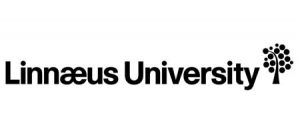Linnaeus University is located in Växjö and Kalmar and offers 150 degree programmes and 2,000 single-subject courses. Here you can study different subjects within arts and humanities, health and life sciences, social sciences, natural sciences, technology, and business and economics. At Linnaeus University, there are also a number of different contract educations, like headmaster training and police education.
and Kalmar and offers 150 degree programmes and 2,000 single-subject courses. Here you can study different subjects within arts and humanities, health and life sciences, social sciences, natural sciences, technology, and business and economics. At Linnaeus University, there are also a number of different contract educations, like headmaster training and police education.
The research at Linnaeus University is of high quality, nationally as well as internationally, and covers a wide range of disciplines. Particularly prominent is the research carried out within our cutting-edge research environments – our Linnaeus University Centres. Within these centres, everything from ecology and evolution to discrimination and integration, postcolonialism, intermediality, bioscience, and big data is being studied.
With 2,000 employees and more than 31,000 students we strive to be a modern university with Småland as our base and the world as our stage. To study and work at Linnaeus University means being part of an environment characterised by knowledge and development. Students acquire new knowledge and learn a critical approach. Researchers make discoveries that can change our society. Employees talk of a workplace with both challenges and opportunities. Linnaeus University is a university where knowledge grows.
Linnaeus University was formed in 2010 through a merger between Växjö University and University of Kalmar.
During 2015 LNU established the working group Global Classroom with the aim of integrating virtual mobility into the internationalisation activities at LNU. In close collaboration with Linnaeus University Summer Academy (LUSA) the Global Classroom working group is developing an open online course module. The course will be tested in a first trial with LUSA students and then opened up as a MOOC. The on-going project “The Entrepreneurial University”, financed by for instance the structural funds of the EU, offers all LNU students to gain entrepreneurial knowledge. The Department of Languages, which works in seven foreign languages, has a vast expertise in educational research and e-learning. The network Collaboration Integration, established in 2011, promotes collaborations through skills development, research and integration/intercultural teamwork, as well as the process of settling down in the Linnaeus region. Examples are the study program for integration and diversity (PIMS) and the validation of exams for refugees.
LNU will be organising webinars and exploiting MOOCs for access and progression into HEI and employment market. We will be testing and evaluating the use of MOOCs with students and recognition issues.
Team Members
- Alastair Creelman, E-learning specialist, University Library. His interests include open education (including OER, MOOCs), social media in education, virtual mobility and quality in e-learning.
- Corina Löwe, researcher and associate professor at the Departments of Language and Film and Literature at Linnaeus University. Her research interests include children’s literature, intermedial aspects of literature and didactics. She teaches courses in the German language and literature study programmes. As examiner for the Goethe Institute she is an expert in language examinations.

